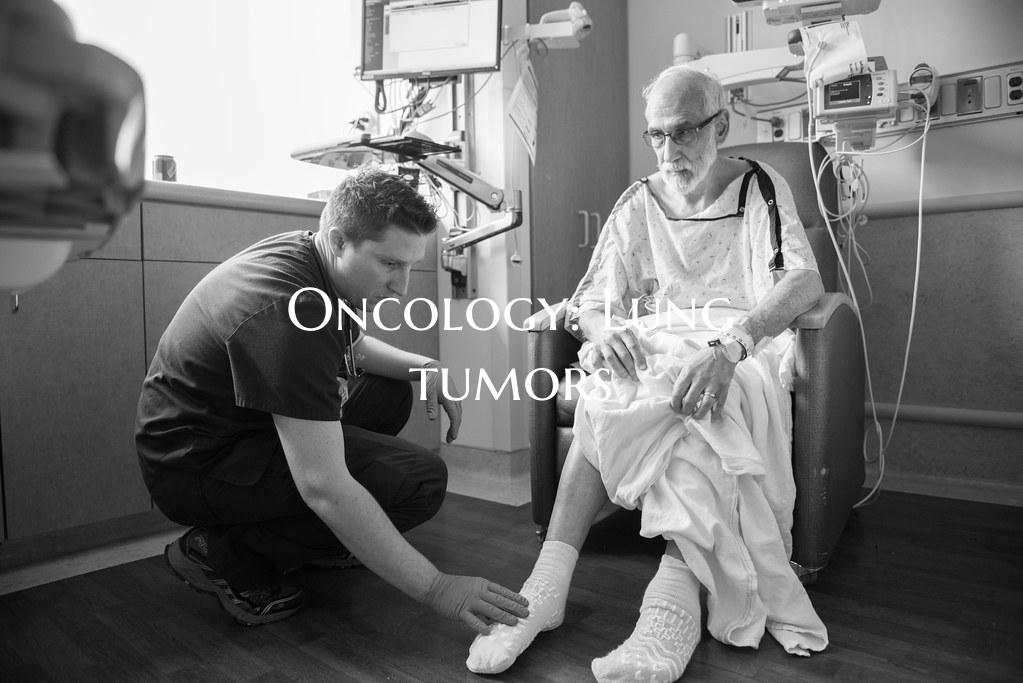
Oncology: Lung tumors
Oncology: Lung Tumors
Lung tumors are abnormal growths that originate in the lungs. These tumors can be benign (non-cancerous) or malignant (cancerous). Lung tumors are a significant concern in the field of oncology due to their high prevalence and associated mortality rates.
There are two main types of lung tumors: small cell lung cancer (SCLC) and non-small cell lung cancer (NSCLC). SCLC is less common but tends to grow and spread rapidly. NSCLC is the most prevalent type of lung cancer and includes subtypes such as adenocarcinoma, squamous cell carcinoma, and large cell carcinoma.
Risk factors for developing lung tumors include smoking tobacco, exposure to secondhand smoke, exposure to radon gas, air pollution, occupational exposure to certain chemicals and substances, a family history of lung cancer, and a history of radiation therapy to the chest.
Symptoms of lung tumors may include persistent cough, chest pain, shortness of breath, wheezing, coughing up blood, hoarseness, recurrent respiratory infections, fatigue, unexplained weight loss, and bone pain.
Diagnosis of lung tumors typically involves imaging tests such as chest X-rays and CT scans, as well as biopsies to examine tissue samples for cancer cells. Treatment options for lung tumors depend on the type and stage of the cancer but may include surgery, chemotherapy, radiation therapy, targeted therapy, immunotherapy, or a combination of these approaches.
Early detection and prompt treatment of lung tumors are crucial for improving outcomes and survival rates. Patients with lung tumors may benefit from multidisciplinary care involving oncologists, pulmonologists, surgeons, radiation oncologists, nurses, and other healthcare professionals.
Research into new therapies and treatment strategies for lung tumors is ongoing, offering hope for better outcomes and quality of life for patients diagnosed with this challenging disease. It is essential for individuals to adopt healthy lifestyle choices, avoid tobacco smoke, and seek medical advice if experiencing any concerning symptoms related to lung health.